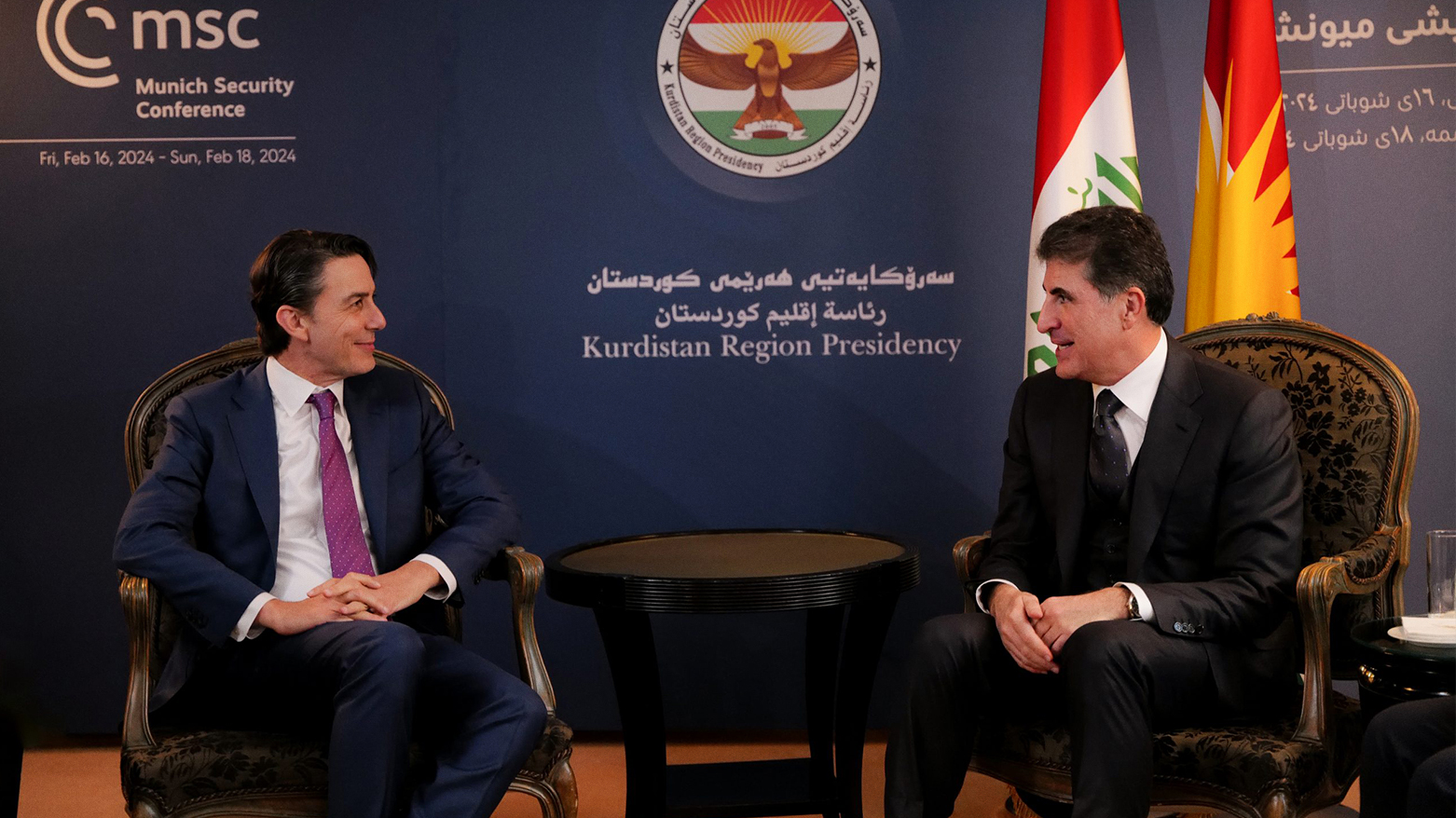U..S. Presidential Envoy on Energy Meets Kurdish President at Munich Conference

WASHINGTON DC, United States (Kurdistan 24) –Amos Hochstein, Senior Advisor to U.S. President Joe Biden for Energy and Investment, met with Kurdistan Region President Nechirvan Barzani on Saturday on the sidelines of the Munich Security Conference.
The Kurdistan Region has a substantial history of engagement with Hochstein. In January 2023, Hochstein and Masrour Barzani, Prime Minister of the Kurdistan Regional Government (KRG), spoke by phone, and both sides agreed on “the importance of promoting trade, investment, and energy in the Kurdistan Region and Iraq,” according to a KRG statement.
Read More: PM Barzani discusses Erbil-Baghdad relations in call with US Special Coordinator
Most recently, on Feb. 9, a KRG delegation, led by the Chief of Staff of the Kurdish presidency’s office, Fawzi Hariri, met with Hochstein, while on a visit to Washington.
It would now appear that the meeting in Washington was preparatory to Saturday’s meeting between Hochstein and Barzani at the Munich conference.
In Saturday’s meeting, the two officials discussed “cooperation on the economy, investment and energy, resuming oil exports from [the] Kurdistan Region, and upholding peace and stability in Iraq,” according to a tweet from Barzani’s office, which Hochstein then retweeted.
President Nechirvan Barzani held a meeting with POTUS Senior Advisor @amoshochstein, to discuss cooperation on the economy, investment and energy, resuming oil exports from Kurdistan Region, and upholding peace and stability in Iraq. pic.twitter.com/IrRhhi4C6U
— KRP Media (@MediaKRP) February 17, 2024
A more detailed account of the meeting, in a read-out from Barzani’s office, explained that Hochstein had “reiterated the continued support and assistance of the United States to both Iraq and the Kurdistan Region.”
In their meeting, Hochstein and Barzani also discussed “the security situation in Iraq and the Kurdistan Region, including the threats faced by Coalition forces and diplomats.”
As Washington’s highly-regarded Institute for the Study of War has explained,“Iran and its so-called ‘Axis of Resistance’ are exploiting the Israel-Hamas war to support their objective of expelling U.S. forces from the Middle East,” launching attacks at U.S. targets, including at bases in Iraq.
In addition to the attacks by its proxies, on Jan. 15, Iran, itself, launched a ballistic missile attack on Erbil, killing a prominent Kurdish businessman, Peshraw Dizayee, his infant daughter, and two others.
Read More: Four civilians killed in missile attack on Erbil
However, since Feb. 4, following two significant U.S. retaliatory strikes, there have been no further attacks by Iranian-backed militias on U.S. forces in Iraq or Syria, as Pentagon Press Secretary Maj. Gen. Pat Ryder told journalists on Thursday (although attacks by the Iranian-backed Houthis on shipping in the Red Sea continue.)
Read More: U.S. Reiterates Continued Commitment to Fighting ISIS in Iraq, Syria
The read-out from Barzani’s office of his meeting with Hochstein ended, “Additionally, they discussed the broader complexities in the Middle East and their potential impact.”
However, it provided no further details of just what that might have involved.
